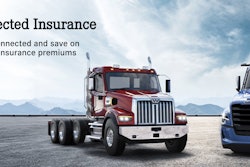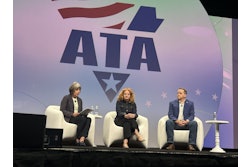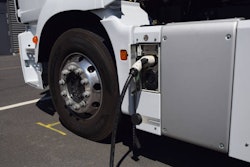Trucking news and briefs for Monday, Nov. 17, 2025:
ATRI seeking fleets for insurance study
The American Transportation Research Institute (ATRI) is seeking motor carriers to participate in research on rising insurance costs and strategies for managing risk. All data is kept completely confidential for analysis in aggregate form only, and ATRI will sign non-disclosure agreements as desired.
Trucking auto liability premiums jumped 36% per mile in the past 8 years, even as truck crashes declined over the past 4 years. In 2025, insurance cost/availability and lawsuit abuse, a primary contributor to rising insurance costs, were voted as the third- and second-greatest issues facing the trucking industry respectively.
In response to this financial pressure, fleets are reevaluating their total cost of risk by pursuing a variety of new technologies, training protocols, and insurance schemes, such as self-insurance or captives. Prior ATRI research detailed how fleets reduced coverage and raised deductibles from 2018 to 2020 in search of savings, self-incentivizing safety improvements but still experiencing higher premiums. ATRI's Research Advisory Committee (RAC) identified expanding upon this prior research as a top priority in order to better understand and assess industry-wide trends in the ongoing adoption and effectiveness of these strategies.
Motor carriers are requested to submit data on their coverage stacks for the years 2021 through 2024, in addition to information on their use of safety technology and alternative insurance arrangements.
All participating carriers will receive a customized report that compares their fleet's cost of risk to an anonymized peer group. Motor carriers can complete the survey by PDF or online here. The deadline is Friday, December 19.
Union Pacific shareholders okay Norfolk Southern merger
Union Pacific Corporation on Friday announced 99.5% of votes cast by its shareholders were in favor of issuing new shares of Union Pacific common stock in connection with its Norfolk Southern merger.
“We appreciate our shareholders’ support in reaching this important milestone on our path to building America’s first coast-to-coast railroad,” said Union Pacific CEO Jim Vena. “Our shareholders see the value and understand this merger will unlock new opportunities to enhance service, growth and innovation."
Knight-Swift Transportation (CCJ Top 250, No. 3) and C.R. England (No. 32) are among trucking stakeholders who have publicly supported the merger.
Vena said his company will file an application with the Surface Transportation Board (STB) detailing how the transaction will provide "seamless, single-line service across the country to improve transit times, safely increase reliability and strengthen the competitiveness of U.S rail.”
The transaction is subject to STB review and approval within its statutory timeline as well as customary closing conditions.
Imports off seasonal trends with trucking capacity questions lingering
A continued decline of both import and export volumes, while hindering overall economic activity, has allowed for port and rail congestion to alleviate, according to the ITS Logistics U.S. Port/Rail Ramp Freight Index.
As port activity normalizes, multiple sectors within the domestic supply chain are experiencing heightened uncertainty as rapid regulatory change affects tariffs, English language proficiency enforcement, and non-domiciled trucking capacity.
U.S. container imports totaled 2,306,687 Twenty-foot Equivalent Units (TEUs) for the month of October, down 7.5% compared to 2024. While the month-over-month decrease was a marginal 0.1%, the decrease represents a divergence from typical seasonal trends, reflecting continued shipper hesitancy and a reliance on front-loaded inventory.
Outside the ports, the trucking market is enduring its own legislative limbo as states react to evolving legislation surrounding non-domiciled drivers and English language proficiency (ELP) requirements. Following the Federal Motor Carrier Safety Administration’s (FMCSA) September announcement freezing the issuance and renewal of non-domiciled CDLs, state agencies, shippers, carriers, and intermediaries have scrambled to understand expectations in remaining compliant, as well as how the ruling would impact overall capacity in the market.
An Appeals Court last week temporarily blocked the enforcement of this ruling, citing a failure to follow proper procedure. With the administrative stay in place indefinitely, state agencies may continue issuing and renewing non-domiciled commercial driver’s licenses to non-citizens. The ruling does not, however, pause enforcement of renewed English language proficiency (ELP) requirements, which have been heavily enforced through roadside compliance checks since July.
“It is estimated that as many as 600,000 drivers could be removed from the U.S. driver ecosystem due to non-domiciled drivers and English language proficiency (ELP) enforcement,” Paul Brashier, Vice President of Global Supply Chain for ITS Logistics. “This, in addition to the acceleration of trucking companies exiting the market, could create trucking capacity issues for most shippers. It is a situation we are monitoring closely.”











